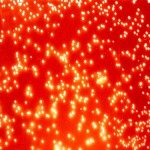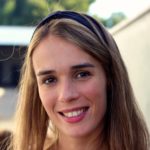Lien vers Pubmed [PMID] – 27446040
Lien DOI – 10.3389/fmicb.2016.01000
Front Microbiol 2016 ; 7(): 1000
KPC-3-producing bacteria are endemic in many countries but only recently became apparent their wide distribution in different Portuguese hospitals. The aim of this study is to characterize genetic backgrounds associated with bla KPC-3 among Klebsiella pneumoniae isolates recently identified on non-hospitalized patients in Portugal. Twenty KPC-producing K. pneumoniae identified between October 2014 and November 2015 in three different community laboratories were characterized. Isolates were mainly from patients from long-term care facilities (n = 11) or nursing homes (n = 6), most of them (75%) previously hospitalized in different Portuguese hospitals. Standard methods were used for bacterial identification and antibiotic susceptibility testing. Carbapenemase production was assessed by the Blue-Carba test, and identification of bla genes was performed by PCR and sequencing. Epidemiological features of KPC-producing K. pneumoniae included population structure (XbaI-PFGE, MLST and wzi sequencing), genetic context (mapping of Tn4401), and plasmid (replicon typing, S1-PFGE, and hybridization) analysis. All K. pneumoniae isolates produced KPC-3, with two MDR K. pneumoniae epidemic clones representing 75% of the isolates, namely ST147 (wzi64/K14.64, February-November 2015) and ST15 (two lineages exhibiting capsular types wzi19/K19 or wzi93/K60, July-November 2015). Other sporadic clones were detected: ST231 (n = 3; wzi104), ST348 (n = 1; wzi94) and ST109 (n = 1, wzi22/K22.37). bla KPC-3 was identified within Tn4401d in all isolates, located in most cases (80%) on cointegrated plasmids (repA FIA+repA FII+ori ColE1;105-250 kb) or in 50 kb IncN plasmids. In conclusion, this study highlights a polyclonal structure of KPC-3-producing K. pneumoniae and the predominance of the ST147 clone among non-hospitalized patients in Portugal, linked to platforms still unnoticed in Europe (bla KPC-3-Tn4401d-IncFIA) or firstly reported (bla KPC-3-Tn4401d-IncN). This scenario underlines the recent penetration of successful mobile genetic elements in previously circulating MDR K. pneumoniae lineages (mainly ST147 and ST15) in Portugal, rather than the importation of the global lineages from clonal group 258.

